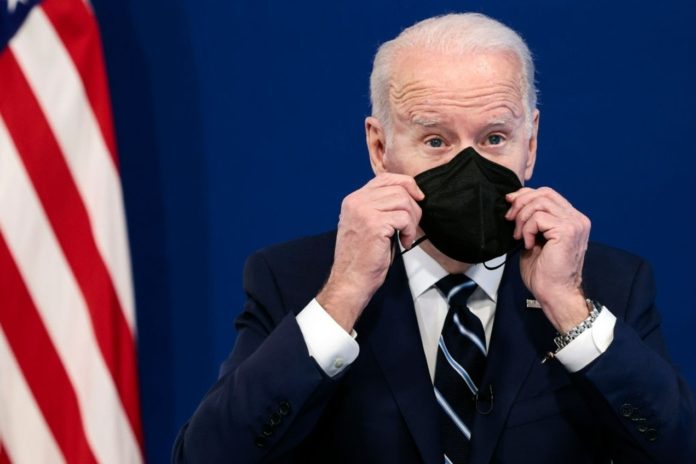“During times of conflict, hawkish policies carry the day. One only needs to look at the upper hand that hawks had in determining U.S. foreign policy, as well as the electoral success that more hawkish leaders have enjoyed recently to see that tough policies and politicians dominate in times of conflict.”
A new study says that long-running conflicts, like the one between Israel and Palestine, get worse because of the way politicians try to get re-elected by making tough policies.
To demonstrate their competence to control possible conflict, leaders propose stronger agreements than their citizens may prefer. As a result of the process, political ‘doves’ embrace harder policies than usual in order to avoid re-election.
When voters are unaware of a politician’s ideology or ability — for example, when a relatively new leader has unclear views on how much conflict they would tolerate – the electoral process naturally favors ideological hawks.
Researchers from the United Kingdom and Australia report their findings in PLOS One, citing examples of both ‘hawks’ and ‘doves’ toughening their positions in the face of conflicts across the political spectrum.
Netanyahu’s aggressive policies helped him win re-election in Israel, whereas India’s current Prime Minister Narendra Modi won re-election by being hawkish with Pakistan.
Faced with dwindling public support, US President Barack Obama delivered a hawkish speech, signaling his desire to be firm in combating war – ironically while accepting the Nobel Peace Prize.
“Conflict between nations is common and often lasts for a long time,” said co-author Siddhartha Bandyopadhyay, Professor of Economics at the University of Birmingham. “The Israel-Palestine conflict, for example has led to enormous costs to both sides and continues to persist.
“Our findings shed fresh light on the persistence of the Middle East conflict and the rise of ideological hawks in the USA following the 9/11 terror attacks.
“During times of conflict, hawkish policies carry the day. One only needs to look at the upper hand that hawks had in determining U.S. foreign policy, as well as the electoral success that more hawkish leaders have enjoyed recently to see that tough policies and politicians dominate in times of conflict.”
Researchers modeled the conflict as a land dispute between two groups, one with an elected leader whose ability to manage a conflict after a settlement is unknown to voters, and the other with an unelected leader whose ability to manage a conflict after a settlement is unknown to voters. Experts looked at scenarios where voters knew about the leader’s hawkish or dovish worldview, as well as those where they didn’t.
Each proposed settlement by the leader increases the likelihood of conflict; the harder the settlement – that is, the less resources given by the leader to the other group – the greater the likelihood that it will not be accepted by many in that group, leading to conflict.
From the study
“Our main finding is that electoral incentives lead politicians to choose policies that are more hawkish than those desired by the voter, conditional on the politician type. Furthermore, the political process, under certain conditions, confers a natural electoral advantage to incumbents which are intrinsically more hawkish than the voter. While we have a homogeneous population in our model, this result would hold with respect to the median voter’s preferences in a heterogeneous population where voters have single peaked preferences over a single-issue policy space.”
“Thus, the electoral process leads to two kinds of hawkishness—one, politicians choose more hawkish policies (i.e., give less land) relative to what the voter would like them to implement, conditional on their ability; and two, politicians who intrinsically favor more extreme policies are more likely to get elected. The intuition behind the first kind of hawkishness is the following: politicians with higher ability are better able to successfully manage the higher costs emanating from more hawkish positions. As a result, they are able to signal their type by choosing sufficiently extreme policies. Regarding the reason for the second kind of hawkishness note that, holding ability fixed, hawkish politicians intrinsically prefer a more extreme policy as their utility from land is higher compared to more dovish ones. Hence, both high ability and intrinsic hawkishness leads to tough policies that lead to higher costs of conflict. If voters cannot distinguish between intrinsic hawks (for many new leaders their ideology may not be fully known, at least as regards national security and conflict negotiation) and high ability types, leaders have to resort to behaving hawkishly to signal their ability and inherent hawks have an intrinsic advantage in that. We characterize the conditions under which the equilibrium voting strategies turn out to be such that doves are replaced at a faster rate than hawks.”
“In sum, our model provides a new explanation of conflict, showing that it arises from re-election motives and that the incentive compatible reelection standard does not achieve the second best. This is a specific application of the notion of political failure. While such political failure and ‘excessive behavior’ has been analyzed in other contexts e.g. deficit financing, inefficient transfer to special interest groups, this is novel as an explanation of conflict. Moreover, we show that the excessive behavior is always in one direction (i.e. induces hawkishness). Further, unlike other related models in the literature, we allow for variations in two dimensions-ideology and ability and show that the hawkish behavior results still hold and that the electoral process favors hawks.”
“We show that the political process contributes to leaders proposing tougher settlements than their citizens would like, so that they can signal their ability to manage the potential conflict. This holds across the ideological spectrum,” added Professor Bandyopadhyay.
Image Credit: Getty
You were reading: New Analysis: Understanding “Rise of Ideological Hawks” in the United States “Following 9/11 Terror Attacks”
